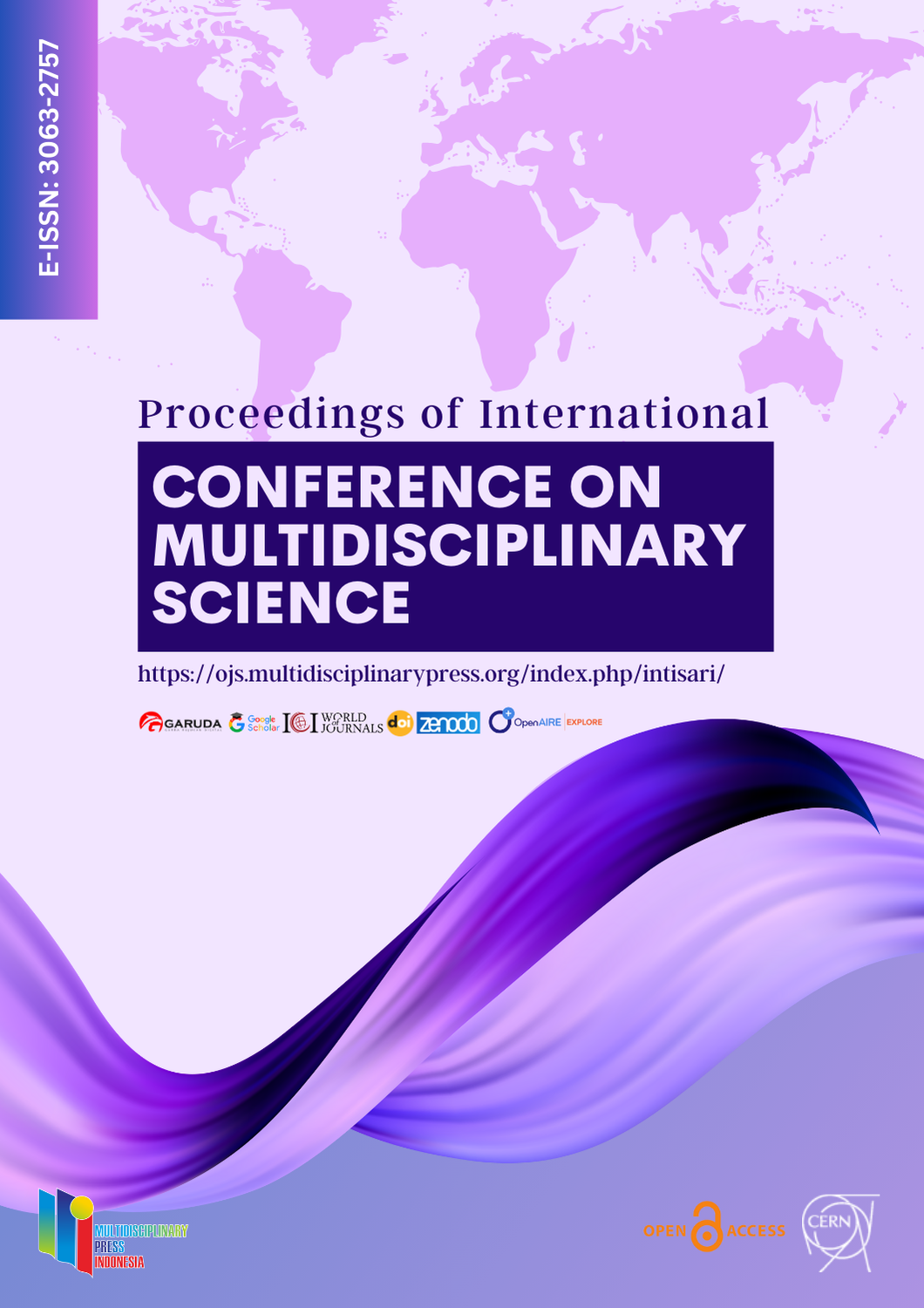The Role of The Criminal Investigation Unit (Satreskrim) of The Deli Serdang Police Region in Identifying Victims of Criminal Acts
Keywords:
Scientific Crime Investigation, Forensic Evidence, Criminal Investigation UnitAbstract
The rapid development of various aspects of social, political, economic, security, and cultural life has led to an increase in the quantity and quality of criminal acts, which significantly disrupts society. Criminal acts are unlawful acts committed either intentionally or unintentionally by an individual who can be held accountable for their actions and which are punishable by law. The primary objective of formal criminal law is to seek material truth, and the process of investigation is essential in this regard. The Indonesian National Police, under Law Number 2 of 2002, play a crucial role in conducting investigations using Scientific Crime Investigation (SCI) methods, which integrate science and technology in forensic functions. Scientific Crime Investigation involves gathering and processing evidence with scientific methods, making it one of the most reliable tools in criminal investigations. The role of police identification units in processing crime scenes (TKP) is vital, as even the smallest evidence can be crucial for solving crimes. This research examines the role of the Criminal Investigation Unit (Satreskrim) of the Deli Serdang Police in identifying victims of criminal acts. The findings highlight the importance of forensic evidence in criminal investigations and the crucial role of police units in uncovering the truth.
Downloads
References
Atmasasmita, Romli. (2010). Sistem Peradilan Pidana Kontemporer. Jakarta: Kencana Prenada Media Group.
Bawengan, W. Gerson. (2007). Penyidikan Perkara Pidana dan Teknik Interogasi. Jakarta: Pradnya Paramita.
Gustiniati, Diah & Rizki, Budi. (2014). Azas-Azas Dan Pemidanaan Hukum Pidana Di Indonesia. Bandar Lampung: Justice Publisher.
Hamzah, Andi. (2008). Hukum Acara Pidana Indonesia. Jakarta: Sinar Grafika.
Lamintang, P.A.F. (2013). Dasar-dasar Hukum Pidana Indonesia. Bandung: PT Citra Aditya Bakti.
Marpaung, Laden. (2009). Proses Penanganan Perkara Pidana (Penyelidikan dan Penyidikan). Jakarta: Sinar Grafika.
Mulyadi, Lilik. (2012). Hukum Acara Pidana Indonesia. Bandung: Citra Aditya Bakti.
Prakoso, Djoko. (2010). Peranan Psikologi dalam Pemeriksaan Tersangka pada Tahap Penyidikan. Jakarta: Ghalia Indonesia.
Prastowo, R.B.B. (2006). Delik Formil/Materiil, Sifat Melawan Hukum Formil/Materiil Dan Pertanggungjawaban Pidana Dalam Tindak Pidana Korupsi. Jurnal Hukum PRO JUSTITIA, Vol 24.
Prodjohamidjojo, Martiman. (2011). Penerapan Pembuktian Terbalik dalam Delik Korupsi. Bandung: Mandar Maju.
Rahardjo, Satjipto. (2012). Ilmu Hukum. Bandung: Citra Aditya Bakti.
Sianturi, S.R. (2002). Asas-asas Hukum Pidana di Indonesia dan Penerapan, Cet. 3. Jakarta: Storia Grafika.
Soekanto, Soerjono. (2011). Faktor-Faktor yang Mempengaruhi Penegakan Hukum. Jakarta: Raja Grafindo Persada.
Susanto. (2003). Naskah Mengenal Identifikasi Polri. Jakarta: Badan Reserse Kriminal Polri Pusat Identifikasi.
Sutanto, I Ketut. (2009). Panduan Praktis Membuat Surat-Surat Penyidikan. Jakarta: Sinar Grafika.
Downloads
Published
How to Cite
Issue
Section
Categories
License
Copyright (c) 2024 Edi Winata, H. Abdul Razak Nasution, S.H.Int., M.Sc.

This work is licensed under a Creative Commons Attribution 4.0 International License.





